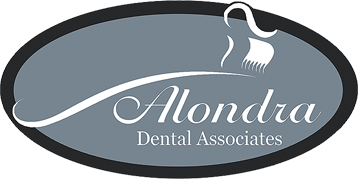Gingivitis is a mild, common form of gum disease characterized by inflammation, redness, and swelling of the gingiva, the gum tissue surrounding the base of the teeth. This condition is reversible with proper oral hygiene and regular dental care. However, if left untreated, gingivitis can progress to a more severe form of gum disease called periodontitis, which may lead to tooth loss.
The primary cause of gingivitis is poor oral hygiene, resulting in plaque buildup on teeth and gums. Plaque is a sticky bacterial film that forms when food particles, particularly starches and sugars, interact with bacteria naturally present in the mouth. Failure to remove plaque through regular brushing and flossing can irritate the gums and trigger gingivitis.
Other factors contributing to gingivitis include hormonal changes during pregnancy, puberty, menopause, and menstruation, which can increase gum sensitivity and susceptibility to inflammation. Additional risk factors include smoking, diabetes, certain medications, and genetic predisposition. Common signs of gingivitis include swollen or puffy gums, dark red gum coloration, gums that bleed easily during brushing or flossing, persistent bad breath, and receding gums.
Recognizing these symptoms is crucial for seeking timely dental care and preventing the progression of gingivitis to more serious gum disease. Understanding the causes and symptoms of gingivitis is essential for effective prevention and treatment of this common oral health condition.
Key Takeaways
- Gingivitis is the inflammation of the gums caused by plaque buildup
- Proper oral hygiene is crucial in preventing and treating gingivitis
- Brushing and flossing regularly can help remove plaque and prevent gingivitis
- A balanced diet can support oral health and prevent gingivitis
- Avoiding harmful habits like smoking and excessive sugar consumption can help prevent gingivitis
- Regular dental check-ups are important for early detection and treatment of gingivitis
- Natural remedies like saltwater rinses and herbal mouthwashes can help alleviate gingivitis symptoms
The Importance of Proper Oral Hygiene
Daily Oral Care Routine
Brushing your teeth at least twice a day with fluoride toothpaste and flossing daily to remove plaque from between your teeth and along the gumline are essential steps in preventing gingivitis. Additionally, using an antiseptic mouthwash can help reduce plaque and prevent gingivitis.
Choosing the Right Tools
Using the right tools for cleaning your teeth is also vital. A soft-bristled toothbrush is ideal for effectively removing plaque without damaging your gums. It’s essential to replace your toothbrush every three to four months or sooner if the bristles are frayed.
Regular Dental Check-Ups
In addition to daily oral care at home, regular visits to your dentist are crucial for maintaining good oral hygiene. Your dentist can remove any plaque or tartar that has built up on your teeth and provide personalized recommendations for improving your oral hygiene routine. By making oral hygiene a priority, you can protect your gums and teeth from the damaging effects of gingivitis and other oral health problems, and maintain overall oral health, including preventing cavities, bad breath, and other dental issues.
Tips for Brushing and Flossing
When it comes to brushing and flossing, there are some important tips to keep in mind to ensure that you are effectively removing plaque and preventing gingivitis. When brushing your teeth, it’s important to use a fluoride toothpaste and a soft-bristled toothbrush. You should brush your teeth at least twice a day, making sure to brush all surfaces of your teeth, including the front, back, and chewing surfaces.
It’s also important to brush along the gumline to remove plaque that can cause gingivitis. When flossing, be sure to use a gentle back-and-forth motion to clean between each tooth and along the gumline. This will help remove plaque and food particles that can contribute to gingivitis.
It’s also important to be mindful of your technique when brushing and flossing. Avoid brushing too hard or using a sawing motion when flossing, as this can damage your gums and cause irritation. Instead, use gentle, circular motions when brushing and a gentle back-and-forth motion when flossing.
It’s also important to take your time when brushing and flossing to ensure that you are thoroughly cleaning all surfaces of your teeth and removing plaque effectively. By following these tips for brushing and flossing, you can maintain proper oral hygiene and reduce your risk of developing gingivitis.
The Role of a Balanced Diet
| Benefits of a Balanced Diet | Examples of Nutrient-Rich Foods |
|---|---|
| Provides essential nutrients for overall health | Fruits, vegetables, whole grains, lean proteins |
| Helps maintain a healthy weight | Salmon, quinoa, nuts, seeds |
| Supports proper growth and development | Dairy products, eggs, lean meats |
| Reduces the risk of chronic diseases | Leafy greens, berries, legumes, fish |
A balanced diet plays a crucial role in preventing gingivitis and maintaining overall oral health. Foods that are high in sugar and starch can contribute to the formation of plaque on your teeth, which can lead to gingivitis if not properly removed through brushing and flossing. It’s important to limit your intake of sugary snacks and drinks, as well as starchy foods like bread, crackers, and pasta.
Instead, focus on eating a diet rich in fruits, vegetables, lean proteins, and whole grains, which can help promote healthy teeth and gums. In addition to choosing the right foods, it’s important to stay hydrated by drinking plenty of water throughout the day. Water helps wash away food particles and bacteria that can contribute to plaque formation and gingivitis.
It’s also important to limit your consumption of acidic foods and drinks, such as citrus fruits and soda, which can erode tooth enamel and increase your risk of developing gingivitis. By maintaining a balanced diet that is low in sugar and starch, high in nutrients, and hydrating with water, you can support your oral health and reduce your risk of developing gingivitis.
Avoiding Harmful Habits
In addition to maintaining proper oral hygiene and a balanced diet, it’s important to avoid harmful habits that can contribute to gingivitis. One of the most harmful habits for oral health is smoking or using tobacco products. Smoking not only stains your teeth and causes bad breath but also weakens your immune system, making it harder for your body to fight off gum infections like gingivitis.
Smoking also reduces blood flow to the gums, making it harder for them to heal once they are damaged by plaque buildup. Another harmful habit to avoid is using your teeth as tools for opening packages or biting on hard objects like ice or pens. This can cause damage to your teeth and gums, increasing your risk of developing gingivitis.
It’s also important to avoid clenching or grinding your teeth, as this can cause wear and tear on your teeth and lead to gum irritation. By avoiding these harmful habits, you can protect your gums from inflammation and reduce your risk of developing gingivitis.
Regular Dental Check-ups
Regular dental check-ups are essential for preventing gingivitis and maintaining overall oral health. During a dental check-up, your dentist will examine your teeth and gums for signs of gingivitis or other oral health issues. They will also perform a professional cleaning to remove any plaque or tartar that has built up on your teeth.
Your dentist can also provide personalized recommendations for improving your oral hygiene routine based on the specific needs of your teeth and gums. In addition to professional cleanings, regular dental check-ups allow your dentist to identify any early signs of gingivitis or other oral health issues before they progress into more serious problems. This early detection can help prevent the need for more invasive treatments down the line.
Your dentist can also provide guidance on how often you should schedule dental check-ups based on your individual oral health needs. By making regular dental check-ups a priority, you can stay ahead of potential oral health issues like gingivitis and maintain a healthy smile for years to come.
Natural Remedies for Gingivitis
In addition to practicing proper oral hygiene and visiting your dentist regularly, there are several natural remedies that can help prevent and treat gingivitis. One natural remedy is oil pulling, which involves swishing a tablespoon of coconut oil around in your mouth for 15-20 minutes before spitting it out. Oil pulling is believed to help reduce plaque buildup on the teeth and gums, which can contribute to gingivitis.
Another natural remedy for gingivitis is using aloe vera gel as a mouthwash or applying it directly to the gums. Aloe vera has anti-inflammatory properties that can help reduce gum inflammation associated with gingivitis. Additionally, rinsing with a saltwater solution can help reduce bacteria in the mouth and soothe inflamed gums.
Finally, incorporating essential oils like tea tree oil or peppermint oil into your oral hygiene routine can help reduce plaque buildup and prevent gingivitis. These essential oils have antimicrobial properties that can help kill bacteria in the mouth and promote healthy gums. While natural remedies can be beneficial for preventing and treating gingivitis, it’s important to consult with your dentist before using any new remedies to ensure they are safe for your individual oral health needs.
In conclusion, understanding gingivitis is essential for preventing and treating this common form of gum disease. Proper oral hygiene, including regular brushing and flossing, is crucial for removing plaque from the teeth and preventing gingivitis. A balanced diet that is low in sugar and high in nutrients can also support healthy teeth and gums while avoiding harmful habits like smoking or using teeth as tools can reduce the risk of developing gingivitis.
Regular dental check-ups are essential for early detection of gingivitis and other oral health issues while natural remedies like oil pulling, aloe vera gel, saltwater rinses, and essential oils can complement traditional oral care practices in preventing and treating gingivitis. By incorporating these strategies into your oral care routine, you can protect your gums from inflammation and maintain a healthy smile for years to come.
If you are experiencing symptoms of gingivitis, it is important to seek treatment from a dental professional. Untreated gingivitis can lead to more serious oral health issues, such as periodontitis. In fact, a recent article from Torrance Dental Associates discusses the importance of addressing gingivitis early to prevent it from progressing to periodontal disease. You can read more about it here.
FAQs
What is gingivitis?
Gingivitis is a common and mild form of gum disease that causes irritation, redness, and swelling of the gingiva, the part of the gum around the base of the teeth.
What causes gingivitis?
Gingivitis is primarily caused by poor oral hygiene that leads to the buildup of plaque on the teeth. Plaque is a sticky film of bacteria that forms on the teeth and gums.
What are the symptoms of gingivitis?
Symptoms of gingivitis include swollen or puffy gums, dark red or purple gums, gums that are tender to the touch, bleeding from the gums when brushing or flossing, and bad breath.
How is gingivitis treated?
Gingivitis is typically treated through improved oral hygiene practices, such as regular brushing and flossing, as well as professional dental cleanings. In some cases, a dentist may recommend antimicrobial mouth rinses or other treatments.
Can gingivitis be prevented?
Gingivitis can be prevented by maintaining good oral hygiene, including regular brushing and flossing, as well as regular dental check-ups and cleanings. Avoiding tobacco use and maintaining a healthy diet can also help prevent gingivitis.


